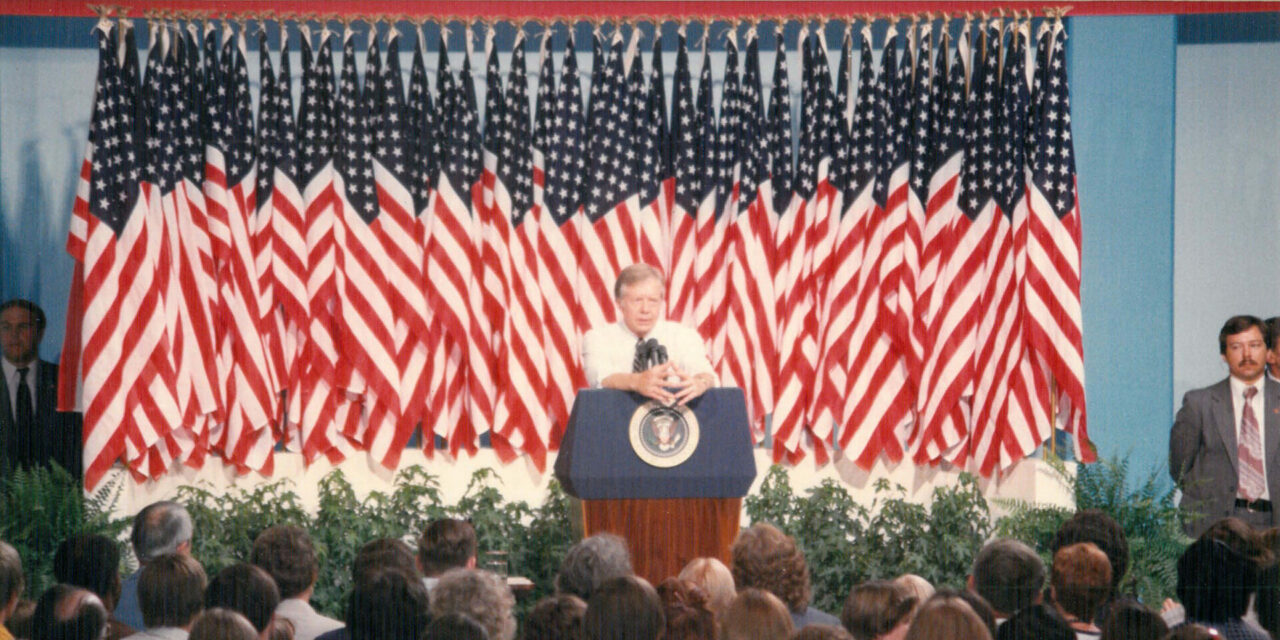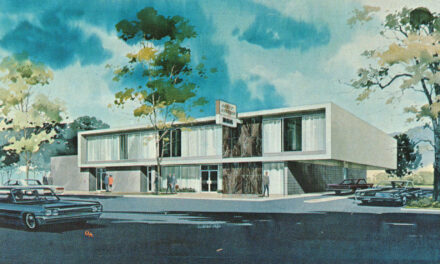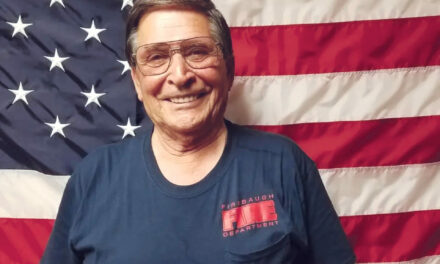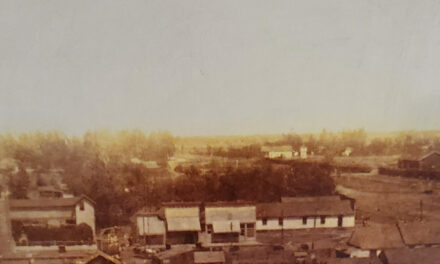By Jill Cunningham and James Leonard
Contributing writers
(Editor’s note: On the passing of former President Jimmy Carter Dec. 29, we publish this story written earlier this year about Carter’s visit to Merced College 44 years ago.)
On the Fourth of July in 1980, in the middle of a presidential campaign and beneath the cloud of the Iran hostage crisis, politics were put to the side—mostly—on a historic day in Merced.
President Jimmy Carter, on the invitation of then-freshman Congressman Tony Coelho, paid a visit to the Central Valley and held an Independence Day town hall in the most illustrious of venues: the Merced College gymnasium.
The president flew by helicopter from Castle Air Force Base to Merced, landed on the Merced College campus, and spoke there for more than an hour, answering several questions from audience members hailing from Merced, Atwater, Livingston and Winton.
It remains the only time a sitting president has visited the city of Merced, and was just the second time a president had visited the county. (In 1962, John F. Kennedy spoke at the opening of the San Luis Dam.)
As President Carter celebrates his 100th birthday, we reflect on the longest-living president’s visit to Merced College.
Coelho, a Merced County native, served for 10 years in Congress and remains a staunch disability rights activist. He was still close with Carter, and during a recent interview, he looked back fondly on the day the president visited his district.
“The college was fabulous,” he said. “It takes a lot of detail to bring in a presidential visit. It’s not easy, and it is very complicated and tedious, but the college was fabulous.
“The White House team was very positive about the way the college handled things, and the president was very impressed with the crowds and the way people handled themselves. It was a very positive thing for the college.”
Carter made the trip to Merced with First Lady Rosalynn Carter (who died Nov. 19, 2023, at the age of 96). A transcript of the town hall shows, in some ways, how little has changed in the 44 years since the president’s visit.
Questions focused on some familiar topics: unwelcome military advances by the Soviet Union, the promise and potential pitfalls of renewable energy source, and, of course, water.
“As we’re helicoptering from Castle to the college,” Coelho recalled, “Rosalynn says, ‘Tell Jimmy what’s the one issue that could cause some problems, so he doesn’t make enemies for you. And I said, ‘Water.’
“So we discussed some particular issues around water, and he said he understood. Then in the town hall, one of the questions was directly on water, in the negative. Jimmy answered the question, and Rosalynn looks at me and says, ‘That’s gonna hurt you, isn’t it?’ And I said, ‘Yes, but that’s okay.’”
Most memorable among the questions Carter received might have been one from a local girl named Joy Boese, who asked whether the Summer Olympics would be held as scheduled in Moscow. The Games would ultimately take place, but the United States did not participate, leading a 66-nation boycott due to the Soviet intervention in Afghanistan.
Before answering the question, Carter inquired as to Joy’s age.
“Eleven,” she said.
“My daughter Amy is 12,” Carter said with his trademark smile. “You’ll have to come see her sometime.”
True to the president’s word, Joy and her family—father Lee Boese Sr., a local orthodontist; mother Sandra; and brother Lee Jr., who was in high school at the time and is now an orthodontist himself—were invited to the White House later that summer for a pool party that included a visit by Country Music Hall of Fame inductee Charlie Daniels.
Coelho said that along with his faith, an appreciation for family was among Carter’s most indelible qualities as president.
Carter once invited Coelho, his wife Phyllis and their two young daughters to dinner at the White House. Dressed in their Sunday best, Tony and Phyllis looked on in amazement as the president, in his jeans and tennis shoes, left their company to show the two girls a playground where he had built a treehouse for his daughter.
“It was just like a family dinner,” Coelho said. “No business. Then after we ate, he had to go back to work.
“He was a tremendous, real, real, real person. He wasn’t as political as a lot of folks in that position, but just very real, very straightforward, very honest. He was one of the nicest guys you’d ever want to meet, and we became very close.”
The final days before the town hall, the Merced Sun-Star reported, saw a “carnival atmosphere” at Merced College. Local Boy Scouts hung posters to welcome the president, while college staff assisted with the installation of special phone lines as required by the White House, prepared for a throng of media, and set up lighting, staging and scaffolding. Helicopters practiced landing behind the gym, in preparation for the president’s inbound flight from Castle.
The event itself kicked off with performances by the Atwater and Merced High School Bands, the Merced Concert Band, the Merced High Acapella Choir,and singers from the local Christian Life Center.
Local Boy Scouts and Girl Scouts marched in with 50 American flags to display behind the president’s bulletproof podium, and a greeting line of county supervisors, mayors and college officials welcomed the president and first lady.
A lottery had been held to award nearly 2,000 tickets for the event, and many who couldn’t get tickets gathered outside for a glimpse of the president. For local residents who attended the town hall, and even for those who didn’t, President Carter’s visit was a moment that engendered feelings of pride for their nation and their community.
John Pedrozo, now a member of the Merced College Board of Trustees, experienced the event vicariously through his father, Joe R. Pedrozo.
Pedrozo said his father was not overly political, but he couldn’t resist the opportunity to see a president in person. Witnessing his father’s excitement and inspiration helped lead Pedrozo, then in his early 20s, into public service himself.
“He was in disbelief that a sitting president was coming to little ol’ Merced,” said Pedrozo, who was elected to the Merced Union High School Board in 2002 and the Merced County Board of Supervisors in 2004 before joining the college’s Board of Trustees.
“He was beaming from ear to ear when he got his ticket, and he talked about President Carter’s visit nonstop for a solid week after.”
For the college and for the community, the president’s visit was a chance to put their best foot forward and show the nation what Merced is all about.
“To host a sitting president is without question one of the highlights of Merced College’s storied history,” President Chris Vitelli said. “I’ve been blessed to see firsthand how our faculty and staff respond when faced with great challenges and great opportunities, and the amazing things they’re able to accomplish, and that has clearly been the case here for decades.”
“Cooperation, collaboration, and resilience are in our DNA at Merced College,” Vitelli added, “and we should all feel great pride in the way our college and community welcomed President Carter all those years ago. This was a truly special event for Merced and for Merced College.”
Four months after his appearance in Merced, Carter—still besieged by the hostage crisis, the economy and other challenges—lost to Ronald Regan in one of the most lopsided presidential elections in U.S. history. Undeterred, Carter went on to launch one of the most remarkable post-presidency careers the nation has ever seen.
Coelho said regardless of how people might evaluate Carter’s four years as president, his legacy as a peacekeeper and humanitarian is unrivaled among former presidents. Even well into his 90s, Carter remained a tireless advocate for peace, justice, compassion and service.
Among his countless awards and honors, he won the Nobel Peace Prize in 2002, and in 2010 he came back to Merced to receive UC Merced’s Spendlove Prize in Social Justice, Diplomacy and Tolerance.
“He’s not going to be rated very highly as president,” Coelho said, “but he’s going to be rated as the No.1 ex-president. He devoted his life to public service.”




